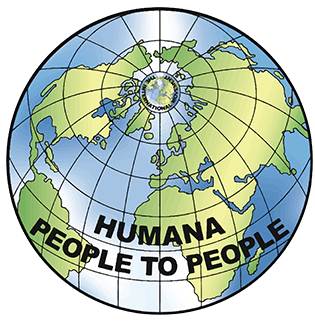Leaving no-one behind: education key in achieving the 2030 UN Sustainable Development Goals
Humana People to People (HPP) joins the rest of the world in marking International Education Day commemorated annually on 24 January, to honour education and its critical importance to human well-being and sustainable development. The theme this year is ‘Learning for people, planet, prosperity and peace’.
The 2020 celebration positions education and learning as humanity’s greatest transformative tool , thus a fundamental universal right and a public good. Education is an enabler of the United Nations (UN) 2030 Agenda for Sustainable Development. As such, drawing attention to “inclusive and equitable education” is integral in accelerating progress to meet the 17 targets of the Sustainable Development Goals (SDGs).
Education is at the heart of both personal and community development. Its purpose is to help develop and fully realize and embrace talent and creative potential, including taking responsibility for life and positively contributing to society. Education is a powerful catalyst for combating poverty and inequality, improving health and well-being, and overcoming stigma and discrimination. It is the key to achieving gender equality and vital for healthy lives and informed decisions at family and community level..
United Nations Education and Scientific Culture Organisation (UNESCO:2020) reveals that 258 million children and youth do not attend school, 617 million children and adolescents cannot read and do basic math, with less than 40% of girls in sub-Saharan Africa completing lower secondary school.
Globally, the UN estimates that 69 million new teachers are required to achieve universal primary and secondary education by 2030. Lack of skilled teachers hinders progress towards achieving universal primary or secondary education, with many untrained teachers and children failing to receive proper education.
For more than 25 years, HPP has been actively working to promote access to education for marginalized children in Africa and India. Engaging the HPP teacher training model, this initiative was first implemented in Maputo, Mozambique in 1993. The concept has since grown and is now being taught in 53 colleges operated by members of HPP in Angola, Congo DR, Guinea Bissau, India, Malawi, Mozambique and Zambia. Through these colleges, 42,000 primary school teachers have been trained. The majority of teachers work in remote rural communities, positively impacting on the learning outcomes of millions of children.
Close to 5,000 primary school teachers graduate yearly from HPP teacher training colleges. Many then choose to further develop their profession by joining the member’s national networks of graduated teachers committed to improving conditions of primary school education by strengthening the quality of teaching pedagogy through teaching materials, sharing experiences and finding solutions to emerging challenges.
Watch a film about DAPP Malawi’s teacher training here.



